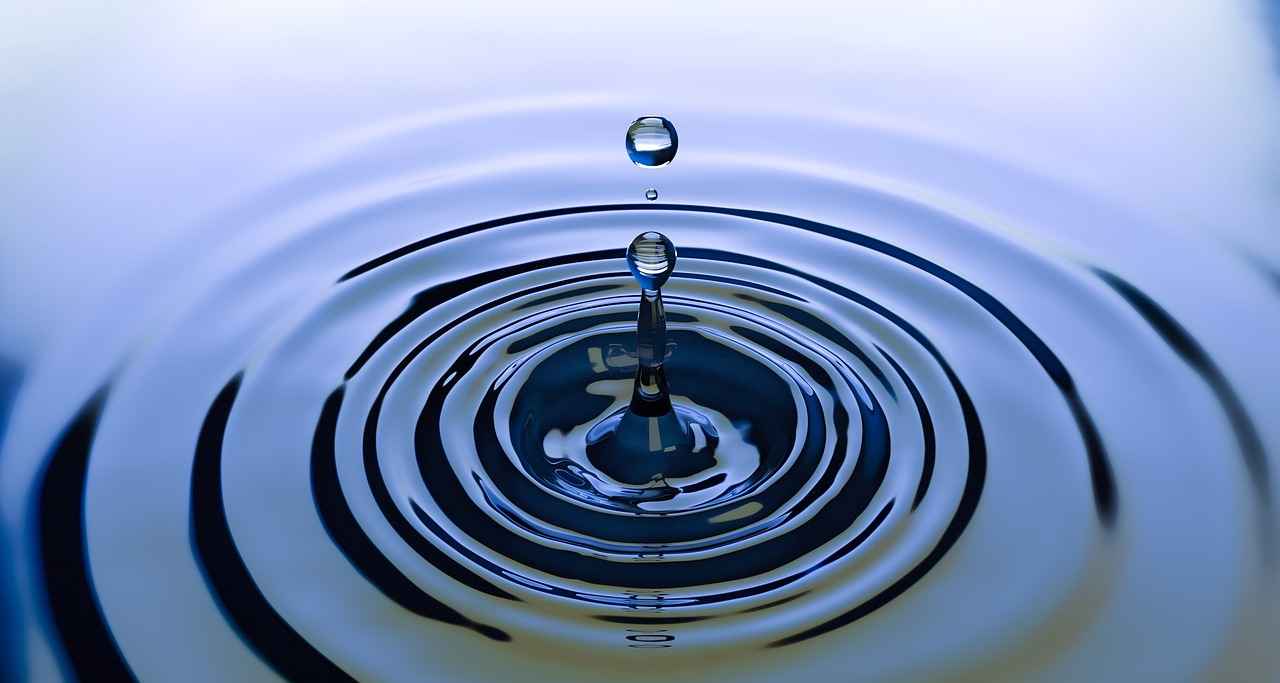This article delves into the guidelines surrounding water consumption during fasting for blood tests, addressing common questions and providing insights to ensure accurate test results. Understanding the intricacies of fasting can help you prepare effectively for your upcoming blood test.
Understanding Fasting for Blood Tests
Fasting before a blood test is crucial for obtaining accurate results. Typically, fasting means abstaining from food and sometimes beverages for a specified period, usually 8 to 12 hours. This practice is essential for tests that measure blood glucose levels, cholesterol, and certain metabolic markers, as it helps eliminate variables that could skew the results.
Importance of Hydration During Fasting
Staying hydrated is vital for your overall health, even when fasting for a blood test. Dehydration can lead to complications, such as fainting or difficulty in drawing blood. Maintaining adequate hydration helps ensure that your blood volume remains stable and that your veins are easier to access.
How Water Affects Blood Test Results
Water consumption can influence certain blood test parameters. For instance, hydration can affect electrolyte levels and blood viscosity. It’s essential to understand that while drinking water does not significantly alter most test results, it is best to follow specific guidelines provided by your healthcare provider.
Tests That Allow Water Consumption
Many blood tests permit water intake. Tests like lipid panels and metabolic panels often allow for water consumption, as it does not interfere with the accuracy of the results. Drinking water can also help you feel more comfortable during the fasting period.
Tests That Require Complete Fasting
Conversely, certain tests mandate complete fasting without water, such as glucose tolerance tests. These tests require strict adherence to fasting guidelines to ensure that the results are not compromised by any form of caloric intake.
Expert Recommendations on Water Intake
Healthcare professionals often recommend drinking small amounts of water during fasting, especially if it helps you feel better. However, it’s crucial to clarify with your doctor whether water is acceptable for your specific test.
Common Myths About Fasting and Water
- Myth: Drinking Water Dilutes Blood Samples – A prevalent belief is that water dilutes blood samples. In reality, hydration is essential and does not significantly affect the integrity of the sample.
- Myth: Fasting Means No Water at All – Many assume fasting means abstaining from all liquids. However, the nuances of fasting can vary, and in many cases, water is permissible.
Practical Tips for Fasting Before a Blood Test
Preparing for a blood test can be daunting. Here are some practical tips:
- Preparing Mentally for Fasting: Understand that fasting is temporary. Mental preparation can make the process smoother.
- Staying Hydrated Without Breaking Fast: Drink water in moderation, as allowed by your healthcare provider, to maintain hydration without compromising your test.
Consulting Your Healthcare Provider
Always consult your healthcare provider regarding fasting instructions. They can provide personalized advice tailored to your health needs and the specific tests you are undergoing.
When to Seek Clarification on Fasting Guidelines
If fasting instructions are unclear, it’s crucial to seek clarification from your healthcare provider. This ensures you are accurately prepared for your test.
Understanding Your Test Results
Post-test, understanding your results is vital. Hydration status can sometimes influence how results are interpreted, so be sure to discuss this with your healthcare provider after the test.
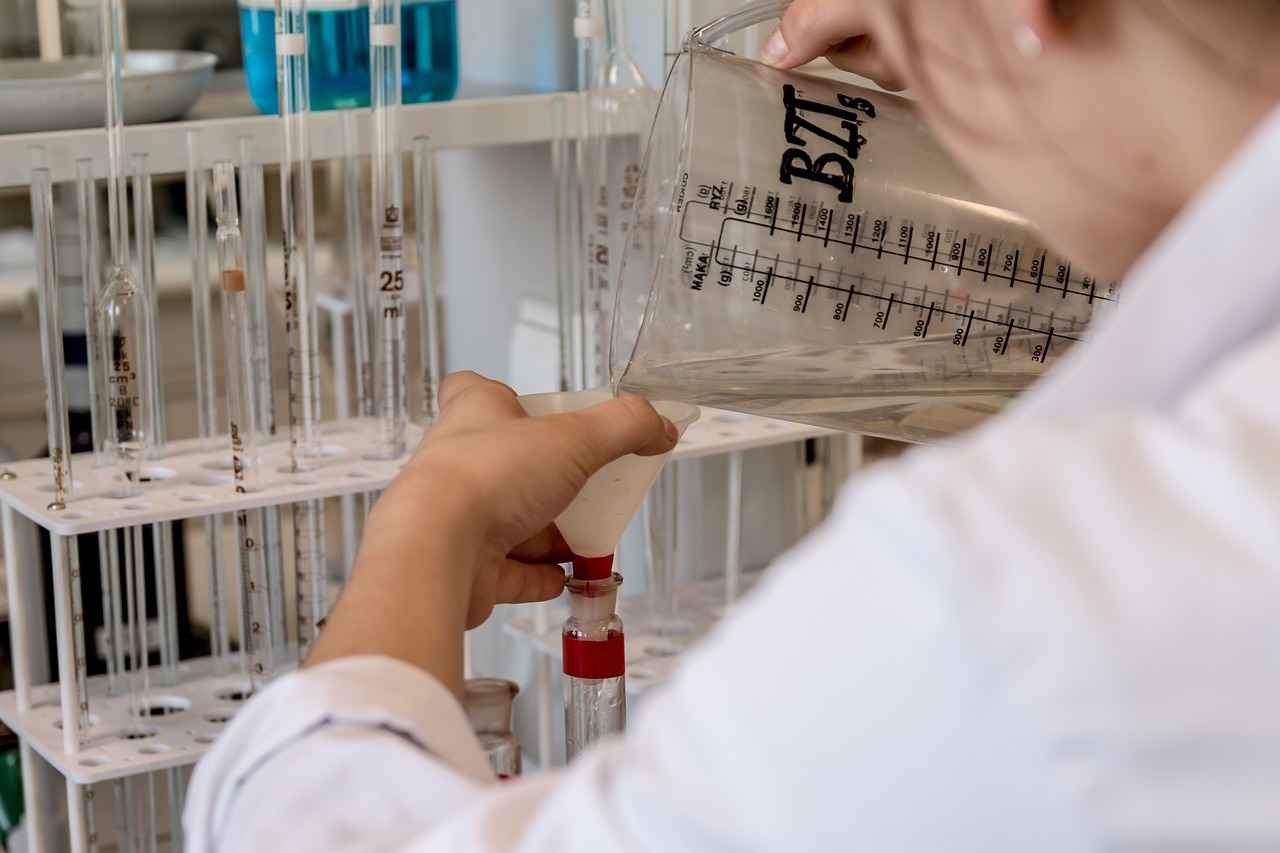
Understanding Fasting for Blood Tests
is essential for ensuring accurate results and effective healthcare management. Fasting involves abstaining from food and, in some cases, drink for a specified period before undergoing laboratory tests. This practice is particularly important for certain blood tests that measure specific substances in the blood, such as glucose and cholesterol levels. In this section, we will delve into what fasting entails, the purpose behind it, and the reasons why it is often a requirement for various medical tests.
Fasting typically means not consuming any food or caloric beverages for a certain duration, usually between 8 to 12 hours before the test. However, the exact duration can vary depending on the type of blood test being conducted. Some tests may require longer fasting periods, while others may allow minimal intake of non-caloric fluids, primarily water.
One of the primary reasons fasting is required is to obtain a baseline measurement of specific blood components. For instance, when measuring blood glucose levels, consuming food can elevate these levels, leading to inaccurate results. Similarly, lipid panels, which assess cholesterol and triglycerides, can be affected by recent food intake, making it imperative to fast prior to testing.
Moreover, fasting helps eliminate variations that may arise from recent meals, ensuring that the results reflect the body’s natural state. This is crucial for healthcare providers to make informed decisions regarding diagnosis and treatment. Inaccurate results can lead to misdiagnosis, unnecessary treatments, or missed opportunities for early intervention.
It’s also important to note that not all blood tests require fasting. For example, tests that measure electrolyte levels or complete blood counts may not necessitate fasting. Understanding the specific requirements for each test is vital, and patients should always consult their healthcare provider for personalized instructions.
In conclusion, fasting before a blood test is a critical component of obtaining accurate and reliable results. By adhering to fasting guidelines, patients can help ensure that their test outcomes reflect their true health status, allowing for better healthcare decisions. Always consult with your healthcare provider regarding the fasting requirements for your specific blood tests to ensure the best possible outcomes.

Importance of Hydration During Fasting
Staying hydrated is essential for maintaining overall health, and this becomes particularly important when you are preparing for a blood test that requires fasting. While the primary focus during this time may be on abstaining from food, it is equally vital to consider the role of water intake. This section delves into the significance of hydration during fasting and how it can positively impact your health and test outcomes.
When you fast for a blood test, your body undergoes various physiological changes. Water plays a crucial role in supporting these changes. It helps maintain blood volume and circulation, ensuring that your organs function optimally. Dehydration can lead to thickened blood, which may complicate the drawing of samples and could potentially skew test results.
Moreover, staying hydrated can help mitigate some of the discomfort associated with fasting. Many individuals experience fatigue or dizziness when they do not consume food or liquids for an extended period. Drinking water can alleviate these symptoms, allowing you to feel more comfortable and focused while waiting for your test.
Another critical aspect of hydration during fasting is its effect on metabolism. Water is essential for various metabolic processes, including the breakdown of nutrients and the elimination of waste products. Even though you are not consuming food, your body still requires energy to function, and adequate hydration supports these ongoing processes.
It is important to note that while hydration is beneficial, it is crucial to follow the specific guidelines provided by your healthcare provider regarding water intake before a blood test. Some tests may allow water consumption, while others may require complete fasting. Understanding these distinctions can help you prepare effectively and ensure accurate results.
In summary, hydration plays a significant role during fasting for a blood test. It supports bodily functions, helps maintain comfort, and can influence test outcomes. Always consult with your healthcare provider to determine the best practices for hydration in relation to your specific fasting requirements.
How Water Affects Blood Test Results
When preparing for a blood test, one of the most common questions that arises is whether or not it is permissible to drink water during the fasting period. Hydration is essential for overall health, and understanding its impact on blood test results is crucial. This section delves into how water affects blood test parameters and what you should keep in mind.
Water can indeed influence certain blood test results. For instance, dehydration can lead to concentrated blood samples, which may skew the results of tests that measure substances like glucose and electrolytes. When the body is dehydrated, the volume of plasma decreases, causing the concentration of these substances to appear higher than they actually are. This can result in misleading conclusions about a person’s health status.
Conversely, adequate hydration can help ensure that blood samples are representative of the body’s actual state. Drinking water before a blood test can help maintain proper blood volume and viscosity, allowing for more accurate readings. However, it is important to note that not all tests allow for water consumption. Certain tests, particularly those measuring blood glucose levels, may require complete fasting to avoid any interference.
When considering hydration during fasting, it’s essential to understand the specific requirements of the tests being conducted. Some tests, such as lipid panels, typically require fasting for 9 to 12 hours. In these cases, water consumption is usually permitted, as it does not significantly alter lipid levels. However, for tests like glucose tolerance tests, even small amounts of water can affect the accuracy of results, making strict adherence to fasting guidelines necessary.
Healthcare professionals often recommend drinking water before blood tests to help with hydration, particularly for patients who may have difficulty giving blood due to dehydration. Staying hydrated can make the process smoother and more comfortable, reducing the chances of complications such as fainting or difficulty in drawing blood.
In summary, while water can positively affect blood test results by preventing dehydration, it is crucial to follow specific fasting instructions provided by your healthcare provider. Always clarify any doubts regarding water consumption during fasting to ensure the most accurate test outcomes.
Tests That Allow Water Consumption
When preparing for certain blood tests, the question of whether or not to drink water often arises. While many tests require strict fasting, some tests actually allow for water consumption. Understanding which tests permit this and the rationale behind these exceptions can help you navigate the fasting process more effectively.
1. Basic Metabolic Panel (BMP)
The Basic Metabolic Panel is one of the most common blood tests that allows water intake. This test measures glucose levels, electrolyte balance, and kidney function. Drinking water prior to the test is encouraged as it helps maintain hydration, which can be beneficial for accurate blood sample collection.
2. Comprehensive Metabolic Panel (CMP)
Similar to the BMP, the Comprehensive Metabolic Panel includes additional tests for liver function. Patients are often permitted to drink water before this test to ensure they are adequately hydrated, which can aid in the accuracy of the results.
3. Lipid Profile
While fasting is typically required for a lipid profile, water consumption is allowed. This test measures cholesterol and triglyceride levels, and staying hydrated can help facilitate easier blood draw and improve overall comfort during the procedure.
4. Thyroid Function Tests
Thyroid function tests assess hormone levels in the blood. For these tests, patients may be allowed to drink water to help enhance the blood flow, making it easier for healthcare professionals to draw a sample.
5. Vitamin and Mineral Testing
Some vitamin and mineral tests do not require complete fasting and allow for water intake. Staying hydrated can help in obtaining a more accurate reading of the blood’s nutrient levels.
Rationale Behind Allowing Water
The primary reason for permitting water consumption during these tests is to ensure that patients remain hydrated. Dehydration can lead to complications such as difficulty in drawing blood, which can affect the quality of the sample. Additionally, proper hydration can help in maintaining normal physiological conditions, which is essential for accurate test results.
Consulting with Healthcare Providers
It is always advisable to consult with your healthcare provider regarding specific fasting instructions for your blood tests. They can provide personalized advice based on your health status and the tests being performed. Always clarify whether water consumption is permitted, as guidelines may vary based on individual circumstances.
Practical Tips for Staying Hydrated
- Drink a glass of water before your fasting begins to ensure you start off well-hydrated.
- Avoid caffeinated beverages, as they can lead to dehydration.
- Consider setting reminders to drink water in the hours leading up to the test.
By understanding which tests allow for water consumption and the reasons behind these guidelines, you can prepare effectively for your blood tests while ensuring your health remains a priority.
Tests That Require Complete Fasting
When preparing for certain blood tests, it is essential to follow strict fasting guidelines. Some tests require complete fasting, which means abstaining from all food and beverages, including water. This section outlines these specific tests and the reasons for adhering to such rigorous requirements.
One of the primary tests that necessitate complete fasting is the Glucose Tolerance Test. This test is crucial for diagnosing diabetes and requires fasting to ensure accurate blood sugar measurements. Consuming any food or drink, even water, can significantly alter the test results, leading to potential misdiagnosis.
Another test that mandates complete fasting is the Lipid Panel. This test measures cholesterol and triglyceride levels in the blood. If water is consumed, it may dilute the blood sample, affecting the concentrations of these lipids and potentially resulting in misleading outcomes. For accurate lipid profile readings, patients are typically advised to fast for at least 9-12 hours prior to the test.
Additionally, the Bilirubin Test is another instance where complete fasting is necessary. This test evaluates liver function and the presence of certain diseases. Drinking water can interfere with the bilirubin levels measured, thus skewing results and complicating the interpretation of liver health.
| Test Name | Fasting Duration | Reason for Complete Fasting |
|---|---|---|
| Glucose Tolerance Test | 8-12 hours | Accurate blood sugar measurement |
| Lipid Panel | 9-12 hours | Prevent dilution of lipids |
| Bilirubin Test | 8 hours | Ensure accurate liver function assessment |
The rationale behind these fasting requirements is to eliminate any variables that could affect the accuracy of the test results. Consuming food or drinks, including water, can lead to fluctuations in blood composition, which may result in false positives or negatives. Therefore, adherence to fasting instructions is crucial for obtaining reliable and valid results.
It is also important to note that while some tests allow for water consumption, the tests mentioned above do not. Patients should always consult with their healthcare provider for specific instructions regarding fasting and hydration before any blood test to ensure optimal outcomes.
In conclusion, understanding which tests require complete fasting and the reasons behind these guidelines is vital for anyone preparing for blood tests. By following these protocols, patients can help ensure that their test results are as accurate and informative as possible.
Expert Recommendations on Water Intake
When preparing for a blood test, understanding the guidelines regarding water consumption is essential. Experts in the healthcare field often emphasize the importance of hydration even during fasting periods. This section consolidates professional recommendations on water intake before undergoing blood tests, ensuring that individuals are well-informed.
Why Water Intake Matters
Healthcare professionals generally advise that drinking water is permissible while fasting for most blood tests. Staying hydrated can help maintain blood volume and facilitate easier blood draws, which can be particularly beneficial for individuals who may have difficulty with venous access. However, it’s crucial to recognize that not all tests are the same, and the type of blood test being performed can influence whether water consumption is advisable.
- Common Tests That Allow Water: Tests such as lipid panels, glucose tests, and basic metabolic panels typically allow for water intake. In these cases, drinking water does not interfere with the accuracy of the results.
- Tests Requiring Absolute Fasting: Certain specialized tests, like some hormone level assessments or tests for specific metabolic disorders, may require complete fasting without any water. Understanding the nature of your specific test is crucial.
Guidelines from Experts
Experts recommend the following when it comes to water intake before a blood test:
- Stay Hydrated: Aim to drink a moderate amount of water before your test. This can help ensure that your veins are plump and easy to access.
- Avoid Other Beverages: While water is generally acceptable, it’s best to avoid beverages like coffee, tea, or juice, as they may contain substances that could affect test results.
- Consult Your Doctor: Always check with your healthcare provider regarding specific fasting instructions for your blood test. They can provide personalized advice based on your health history and the tests being performed.
What to Remember
While the general consensus among healthcare professionals is that drinking water is beneficial during fasting for most blood tests, it’s essential to follow specific guidelines provided by your healthcare provider. This ensures that you achieve the most accurate results possible. If you have any doubts or questions, do not hesitate to reach out to your healthcare team for clarification.
In summary, staying hydrated is important for both your health and the accuracy of blood tests. By adhering to expert recommendations, you can navigate the fasting process with confidence, ensuring that you are well-prepared for your upcoming blood test.
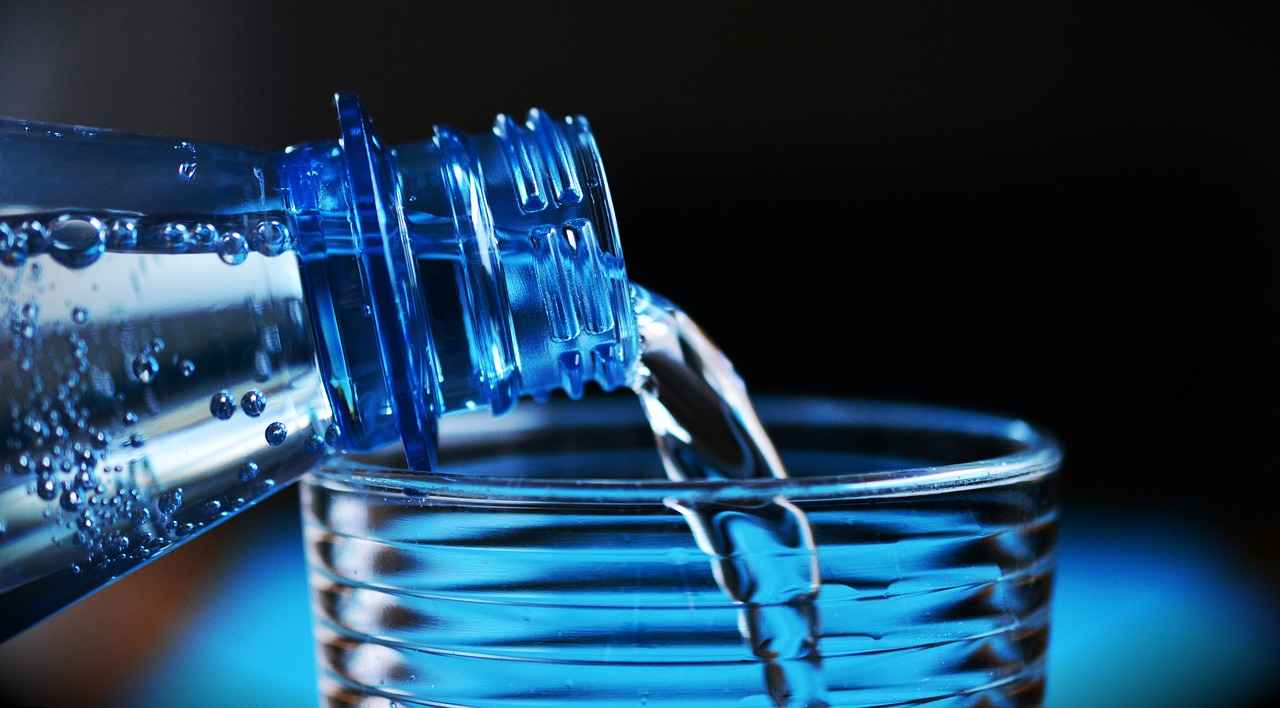
Common Myths About Fasting and Water
Fasting has become a common practice for various health and medical reasons, but misconceptions about fasting and water consumption can lead to confusion. This section aims to debunk some of the most prevalent myths surrounding these topics, providing clarity on what is permissible during fasting.
Many individuals believe that fasting means complete abstinence from all liquids, including water. However, this is not always the case. Understanding the nuances of fasting can help individuals navigate their hydration needs more effectively.
A prevalent belief is that consuming water before a blood test could dilute the blood samples, leading to inaccurate results. In reality, drinking water does not significantly alter blood composition. Hydration is essential, as it can help maintain blood volume and facilitate the collection of samples without affecting the test’s integrity.
Many people assume that fasting implies a total ban on all liquids. This misconception can lead to unnecessary discomfort and dehydration. In fact, many healthcare providers encourage the intake of water during fasting for blood tests, particularly when the test does not specify otherwise. Staying hydrated can also help ease the fasting process and minimize feelings of hunger.
It is essential to understand the specific guidelines regarding water consumption during fasting for blood tests. Some tests require complete fasting, while others allow for water intake. Here are some key points to consider:
- Tests Allowing Water: Certain tests, such as lipid panels, may permit water consumption to prevent dehydration.
- Tests Requiring Complete Fasting: Tests like glucose tolerance tests often require complete abstinence from food and drink, including water.
Healthcare professionals often provide guidance on the importance of hydration during fasting. Experts recommend drinking water to maintain hydration levels, especially if fasting lasts longer than a few hours. Proper hydration can help ensure that blood samples are collected efficiently and that patients feel more comfortable during the fasting period.
To navigate fasting successfully while maintaining hydration, consider the following tips:
- Plan Ahead: Know the requirements for your specific blood test and prepare accordingly.
- Stay Hydrated: Drink plenty of water in the hours leading up to your fasting period.
- Listen to Your Body: If you feel excessively thirsty or dizzy, consult your healthcare provider for advice.
In conclusion, understanding the myths and facts about fasting and water consumption is crucial for anyone preparing for a blood test. By debunking these misconceptions, individuals can better prepare themselves for the testing process, ensuring accurate results while maintaining their health.
Myth: Drinking Water Dilutes Blood Samples
A common misconception surrounding blood tests is the belief that drinking water before the test can dilute blood samples, leading to inaccurate results. This myth has persisted for years, causing unnecessary anxiety for patients who are preparing for blood tests. In reality, the effects of hydration on blood test results are much more nuanced.
When fasting for a blood test, the primary goal is to ensure that certain parameters remain stable for accurate measurement. While some worry that drinking water can alter these measurements, the truth is that hydration is essential for maintaining overall health and ensuring the body functions optimally during the fasting period.
Research indicates that proper hydration before a blood test can actually be beneficial. For instance, when a person is adequately hydrated, their blood volume increases slightly, which can make it easier for healthcare professionals to draw blood. This is particularly important for tests that require a larger volume of blood.
Furthermore, certain blood tests, such as those measuring glucose or cholesterol levels, do require fasting. However, the consumption of water during this fasting period is generally permitted and does not significantly affect the results. In fact, many healthcare providers encourage patients to drink water to avoid dehydration, which can lead to complications such as dizziness or fainting during the blood draw.
It is essential to distinguish between water consumption and other beverages. While water is typically allowed, beverages such as coffee or tea, especially those containing sugar or cream, can interfere with test results. Therefore, it is crucial to follow specific fasting guidelines provided by your healthcare provider.
Moreover, the impact of hydration on blood test results can vary depending on the type of test being conducted. For example, tests that measure electrolyte levels might be influenced by hydration status, while others may not show significant changes. This variability underscores the importance of consulting with a healthcare professional about individual fasting requirements.
In summary, the belief that drinking water dilutes blood samples is largely unfounded. Staying hydrated is not only permissible but often recommended during fasting for blood tests. It is vital to adhere to the specific guidelines provided by healthcare professionals and to remain informed about how hydration can impact overall health and test accuracy.
In conclusion, understanding the relationship between hydration and blood tests can alleviate concerns surrounding the fasting process. By drinking water as advised, patients can help ensure a smoother experience and more accurate test results.
Myth: Fasting Means No Water at All
Many individuals harbor the misconception that fasting strictly prohibits any liquid intake, including water. This notion can lead to unnecessary confusion and anxiety, particularly when preparing for blood tests. Understanding the nuances of fasting and water consumption is essential for both health and accurate test results. This section aims to clarify these misunderstandings and provide guidance on how to approach hydration during fasting.
Fasting is often defined as abstaining from food, but the rules surrounding liquids, especially water, can vary significantly depending on the context of the fast. For blood tests, the primary goal of fasting is to ensure that the test results are not influenced by recent dietary intake. However, the idea that one must completely avoid water during this period is not universally applicable.
Why Hydration Matters During Fasting
Staying hydrated is crucial for maintaining overall health. Water plays a vital role in various bodily functions, including regulating body temperature, keeping joints lubricated, and aiding in the transportation of nutrients. When fasting, particularly for extended periods, dehydration can lead to fatigue, headaches, and impaired cognitive function. Therefore, it is essential to understand that while some fasting protocols may restrict food intake, they do not necessarily prohibit water consumption.
Understanding Fasting Protocols
Different blood tests have varying requirements regarding fasting. For instance, tests that measure glucose levels typically require complete fasting, while others may allow water intake. It is crucial to follow the specific guidelines provided by your healthcare provider or the testing facility. In many cases, drinking water does not compromise the integrity of the blood sample and can actually help in obtaining more accurate results by ensuring proper hydration.
Expert Insights on Water Consumption
Healthcare professionals often recommend drinking water before a blood test unless instructed otherwise. According to experts, water does not interfere with most blood test results and can help facilitate the blood draw by making veins more prominent. However, it is always advisable to consult with your healthcare provider for personalized recommendations based on your specific health needs and the tests being conducted.
Common Misunderstandings
- Myth 1: Drinking water will dilute blood samples.
- Myth 2: All fasting means no liquids, including water.
Both of these myths can lead to unnecessary anxiety and confusion. In reality, proper hydration can enhance the blood draw process and does not compromise the results of most tests.
Practical Tips for Staying Hydrated While Fasting
- Drink plenty of water the day before your test to ensure you are well-hydrated.
- On the morning of your test, consume a reasonable amount of water unless otherwise instructed.
- Avoid caffeinated beverages as they may lead to dehydration.
Ultimately, understanding the relationship between fasting and water consumption can empower individuals to approach their health with confidence. By debunking common myths and emphasizing the importance of hydration, patients can better prepare for their blood tests and ensure accurate results.
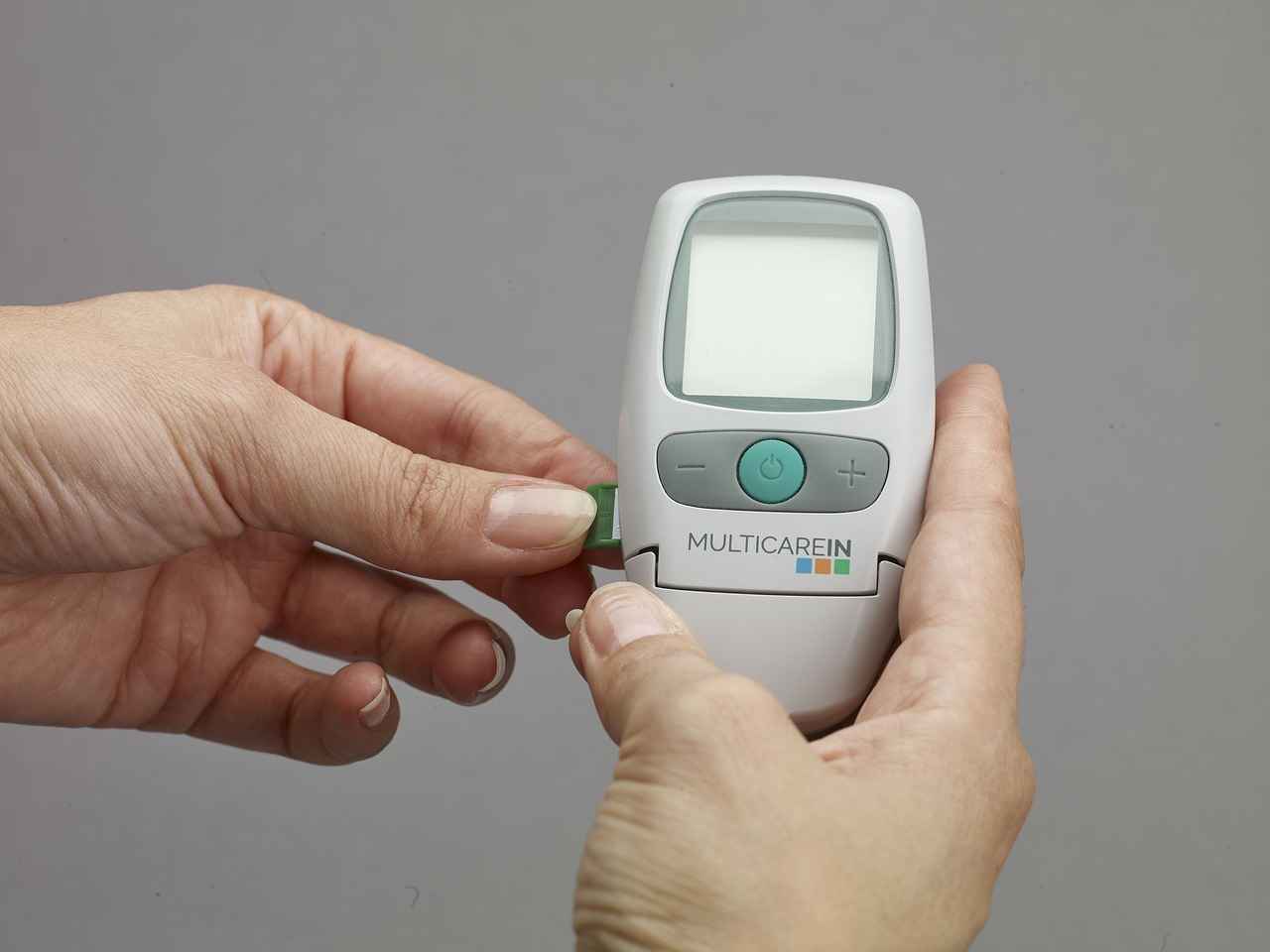
Practical Tips for Fasting Before a Blood Test
Preparing for a blood test can indeed feel overwhelming, especially when it comes to understanding the fasting requirements. While the idea of not eating or drinking for a certain period can be intimidating, there are practical strategies that can help you fast effectively while ensuring you stay adequately hydrated. This section provides actionable tips to make the process smoother.
Before you begin your fast, it’s essential to know the specific requirements for your blood test. Different tests have varying fasting durations, ranging from 8 to 12 hours. Always consult your healthcare provider to clarify how long you need to fast and whether you can consume water during this time.
Prior to starting your fast, ensure you are well-hydrated. Drink plenty of water in the hours leading up to your fasting period. This can help maintain your hydration levels and make the fasting period feel less taxing.
If your test allows water consumption, take advantage of this by sipping water throughout your fasting period. Staying hydrated can help reduce feelings of hunger and discomfort. Remember, water does not interfere with most blood tests and is generally encouraged.
Timing your fast can make a significant difference. If possible, schedule your blood test for early in the morning. This way, you can fast overnight while you sleep, making it easier to meet the fasting requirements without feeling deprived.
While staying hydrated is crucial, it’s best to avoid caffeinated drinks like coffee or tea, as they can lead to dehydration. Stick to plain water, which is the safest option to maintain your hydration without affecting your test results.
Fasting can be a mental challenge as much as a physical one. Keep yourself busy with light activities such as reading, watching a movie, or engaging in hobbies. This distraction can help take your mind off hunger.
- Get a good night’s sleep before the test to help your body cope with the fasting period.
- Wear comfortable clothing, as you may need to sit for a while during the test.
- Bring a book or something to keep you occupied while waiting.
Once your blood test is complete, make sure to replenish your fluids. Drink water or a light electrolyte drink to help your body recover from the fasting period. This is especially important if you felt lightheaded or dizzy during the test.
By following these practical tips, you can navigate the fasting process with greater ease. Remember to always consult with your healthcare provider for personalized advice tailored to your specific health needs and the type of blood test you are undergoing.
Preparing Mentally for Fasting
Fasting can be a daunting experience for many individuals, especially when it comes to undergoing a blood test. The anticipation of not eating or drinking for an extended period can lead to anxiety and discomfort. However, with the right mental strategies, you can navigate this challenge more effectively. Here are some tips to help you prepare mentally for fasting.
- Understand the Purpose: Recognizing that fasting is essential for accurate blood test results can help you stay focused. When you understand that the process is designed to provide your healthcare provider with the best information about your health, it can shift your mindset positively.
- Set Clear Goals: Before the fasting period begins, set a clear goal for yourself. Whether it’s to maintain a positive attitude, stay calm, or simply get through the fasting period without stress, having a goal can provide motivation.
- Plan Your Day: Strategically plan your fasting day. Prepare activities that will keep your mind occupied. Engaging in light tasks, reading, or even watching a movie can help distract you from feelings of hunger.
- Practice Mindfulness: Incorporate mindfulness techniques such as meditation or deep-breathing exercises. These practices can help reduce anxiety and enhance your ability to cope with the discomfort of fasting.
- Stay Positive: Maintaining a positive outlook can significantly impact your fasting experience. Remind yourself that the discomfort is temporary and that you are taking a proactive step towards better health.
- Visualize Success: Visualization can be a powerful tool. Picture yourself successfully completing the fasting period. This mental imagery can boost your confidence and help you stay committed to your goal.
- Talk About It: Sharing your thoughts and feelings with friends or family can alleviate stress. Discussing your concerns can provide emotional support and make the experience feel less isolating.
- Prepare for Distractions: Acknowledge that there may be moments of craving or discomfort. Prepare healthy distractions, such as a favorite book or hobby, to help you cope during these challenging times.
By implementing these strategies, you can enhance your mental resilience and make the fasting experience more manageable. Remember, the key is to stay focused on the end goal and recognize that this temporary discomfort is a step towards better health outcomes.
When the day of the test arrives, remind yourself of the techniques you’ve practiced. Staying calm and collected can lead to a smoother experience, making the fasting process feel less burdensome. Ultimately, your mental preparation can make a significant difference in how you approach and endure the fasting period.
Staying Hydrated Without Breaking Fast
Staying hydrated during fasting, especially when preparing for a blood test, is essential for both your health and the accuracy of the test results. While it may seem challenging to balance hydration with fasting guidelines, there are effective strategies you can employ. In this section, we will explore practical tips for maintaining hydration without compromising your fast.
- Understand the Importance of Water Intake: During fasting, your body still requires a certain level of hydration to function optimally. Water supports vital bodily functions, including temperature regulation, nutrient transport, and waste elimination. Even when fasting, it’s crucial to keep your body hydrated.
- Plan Your Water Intake: If your fasting guidelines allow for water consumption, make a plan. Aim to drink water at regular intervals before your fast begins. This can help ensure that you start your fasting period well-hydrated.
- Use a Water Bottle: Keeping a water bottle handy can serve as a reminder to drink water throughout the day. Consider filling it with a specific amount of water that you aim to consume before starting your fast.
- Monitor Your Body’s Signals: Pay attention to signs of dehydration, such as dry mouth, fatigue, or dizziness. If you experience these symptoms, it may be a sign that you need to adjust your water intake.
- Incorporate Hydrating Foods: If your fasting guidelines permit, consider including hydrating foods in your diet leading up to the fast. Fruits like watermelon, cucumber, and oranges have high water content and can help boost your hydration levels.
- Choose the Right Time to Drink: If you are allowed to drink water during your fasting period, choose times when you are less likely to feel hungry. Sipping water in the morning or during non-meal times can help you stay hydrated without triggering hunger pangs.
- Avoid Dehydrating Beverages: While it might be tempting to reach for caffeinated drinks or sugary beverages, these can lead to dehydration. Stick to plain water or herbal teas that do not contain caffeine to maintain optimal hydration.
By implementing these strategies, you can effectively stay hydrated while adhering to fasting guidelines. Remember that hydration not only supports your overall health but also plays a crucial role in ensuring accurate blood test results. Always consult with your healthcare provider for personalized advice regarding hydration and fasting, as individual needs may vary.
Staying mindful of your hydration levels can significantly enhance your fasting experience. Whether you are preparing for a blood test or simply practicing intermittent fasting, these tips will help you maintain a healthy balance between hydration and fasting requirements.
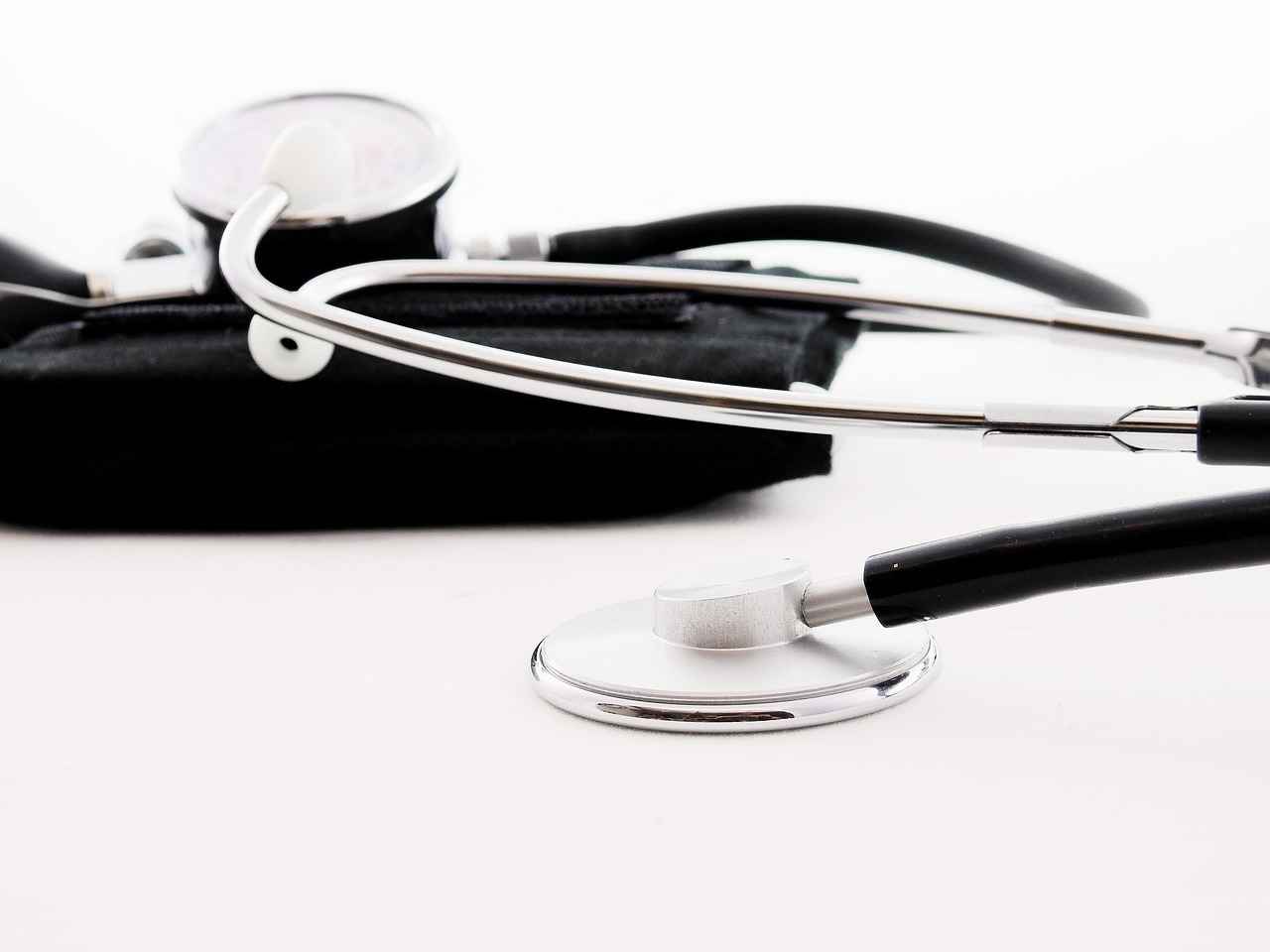
Consulting Your Healthcare Provider
When it comes to preparing for a blood test, is essential. They are equipped with the knowledge and expertise to offer personalized advice tailored to your specific health needs. This section delves into the importance of seeking professional guidance regarding fasting instructions and hydration practices.
Fasting before a blood test can vary significantly depending on the type of test being conducted. Some tests require complete fasting, while others may allow certain exceptions, such as water intake. Your healthcare provider can clarify these distinctions, ensuring that you adhere to the correct fasting protocol for accurate results.
Moreover, it is crucial to understand that individual health conditions can impact fasting recommendations. For instance, individuals with diabetes or other metabolic disorders may need tailored advice to prevent adverse effects from fasting. Therefore, discussing your medical history with your provider can lead to a more effective fasting strategy.
During your consultation, consider asking the following questions:
- What specific fasting requirements apply to my upcoming blood test?
- Is it permissible for me to drink water during the fasting period?
- How long should I fast before the test?
- Are there any medications I should take or avoid during the fasting period?
Additionally, staying hydrated is vital for overall health, and your provider can guide you on how to maintain hydration without compromising the integrity of your test results. They may advise you on the amount of water you can consume and at what times, ensuring that your hydration levels are optimal while still adhering to fasting guidelines.
It’s also important to recognize that fasting instructions can sometimes be unclear or conflicting. If you have any doubts or require further clarification, do not hesitate to reach out to your healthcare provider. They are there to assist you and ensure that you are fully prepared for your blood test.
In summary, always prioritize consulting your healthcare provider regarding fasting instructions. Their personalized advice is invaluable in navigating the complexities of fasting for blood tests. By doing so, you can enhance your understanding of the process, leading to more accurate test results and better health outcomes.
When to Seek Clarification on Fasting Guidelines
Fasting for a blood test is often necessary to ensure accurate results; however, the guidelines surrounding fasting can sometimes be confusing. It is essential to understand when to seek clarification from healthcare professionals regarding fasting instructions. This section aims to provide insights into the importance of communication with your healthcare provider, especially when in doubt.
First and foremost, it is crucial to recognize that not all fasting guidelines are the same. Different tests may have varying requirements, which can lead to misunderstandings. For instance, while some tests may allow water consumption, others may require complete fasting, including abstaining from all liquids. If you are unsure about the specific requirements for your test, it is important to ask questions. Here are some scenarios when you should consider seeking clarification:
- Ambiguous Instructions: If the fasting instructions provided by your healthcare provider or lab are unclear, do not hesitate to reach out for clarification. It is better to ask than to risk inaccurate test results.
- Health Conditions: Individuals with certain health conditions, such as diabetes, may need specific guidance on fasting. If you have a medical condition that could affect your fasting, consult your healthcare provider.
- Medications: Some medications may require adjustments during fasting. If you are on medication, it is crucial to discuss how fasting may impact your regimen.
- Duration of Fasting: Different tests may require different fasting durations. If you are unsure how long you need to fast, seek clarification to avoid potential issues.
- Changes in Health Status: If you experience any changes in your health status before your test, such as illness or new symptoms, consult your healthcare provider to ensure that fasting is still appropriate.
Moreover, it is important to remember that your healthcare provider is there to help you navigate these complexities. They can provide personalized advice based on your health history and the specific tests you are undergoing. Establishing open communication can help alleviate any concerns you may have about fasting.
In addition to seeking clarification, consider the following tips to enhance your fasting experience:
- Document Your Questions: Before your appointment, write down any questions you have regarding fasting. This will ensure you remember to address them during your consultation.
- Confirm Test Details: Double-check the details of your test, including the type of fasting required and the duration.
- Stay Informed: Educate yourself about the fasting guidelines for your specific tests. Reliable resources, such as your healthcare provider’s website or reputable medical sites, can provide valuable information.
In summary, while fasting for a blood test is essential for accurate results, it is equally important to seek clarification when instructions are unclear. Engaging with your healthcare provider ensures that you follow the correct guidelines, ultimately leading to better health outcomes.
Understanding Your Test Results
After undergoing a blood test, the next crucial step is to understand your results. This process is essential for making informed decisions about your health and can guide you in discussing further steps with your healthcare provider. Blood test results can often seem overwhelming or confusing, but breaking them down into manageable parts can help clarify what they mean.
First and foremost, it is vital to recognize that each blood test serves a specific purpose. Tests may evaluate various factors such as cholesterol levels, glucose levels, or the presence of certain diseases. Understanding the context of each test will aid in interpreting the results accurately.
When you receive your results, they will typically include a reference range for each measurement. These ranges indicate what is considered normal based on a healthy population. However, it is important to remember that individual variations exist. Factors such as age, sex, and medical history can influence what is normal for you.
One crucial aspect to consider is the role of hydration prior to the test. Proper hydration can affect the concentration of certain substances in your blood, such as electrolytes and proteins. For instance, being well-hydrated may lead to more accurate readings for tests measuring kidney function. Conversely, dehydration can concentrate blood components and may skew results, leading to potential misinterpretations.
After receiving your results, it is advisable to schedule a follow-up appointment with your healthcare provider. During this meeting, you can discuss the implications of your results and any necessary lifestyle changes or further testing. Your provider can help you understand the significance of each result in the context of your overall health.
In addition to discussing results with your provider, consider the following steps:
- Keep a record of your results for future reference. Tracking changes over time can provide valuable insights into your health.
- Ask questions about anything you do not understand. It is essential to have clarity on your health status.
- Consider lifestyle adjustments based on your results. For example, if cholesterol levels are high, adopting a heart-healthy diet may be beneficial.
Furthermore, it can be helpful to educate yourself about common blood tests and their implications. Resources such as medical websites, patient education materials, and support groups can provide additional information. Understanding the significance of your test results empowers you to take an active role in your healthcare.
In summary, understanding your blood test results involves recognizing the meaning behind each measurement, considering the impact of hydration, and engaging in open dialogue with your healthcare provider. By taking these steps, you will be better equipped to navigate your health journey confidently.
Frequently Asked Questions
- Can I drink water while fasting for a blood test?
Yes, in most cases, you can drink water while fasting for a blood test. Staying hydrated is important, and it usually does not affect the test results. However, always check with your healthcare provider for specific instructions.
- What tests require complete fasting without water?
Tests like glucose tolerance tests and certain lipid panels often require complete fasting, including no water. This is to ensure the accuracy of the results, so it’s essential to follow your doctor’s guidelines.
- Does drinking water dilute blood samples?
It’s a common myth that drinking water dilutes blood samples. In reality, staying hydrated can help ensure more accurate results by keeping your blood volume consistent.
- How can I stay hydrated while fasting?
To stay hydrated, drink water before the fasting period begins. Once fasting starts, stick to clear, non-caloric fluids if allowed, and remember to drink enough the day before your test.
- What should I do if I’m unsure about fasting guidelines?
If you’re ever in doubt about fasting instructions, it’s best to consult your healthcare provider. They can give you personalized advice based on your health needs and the specific tests you’re undergoing.






